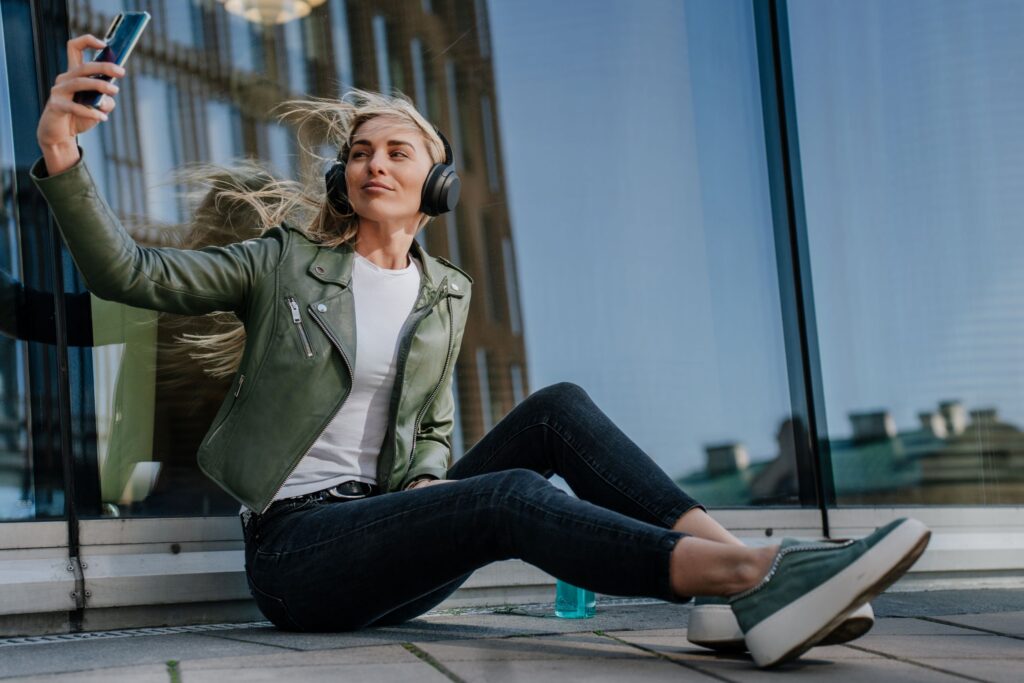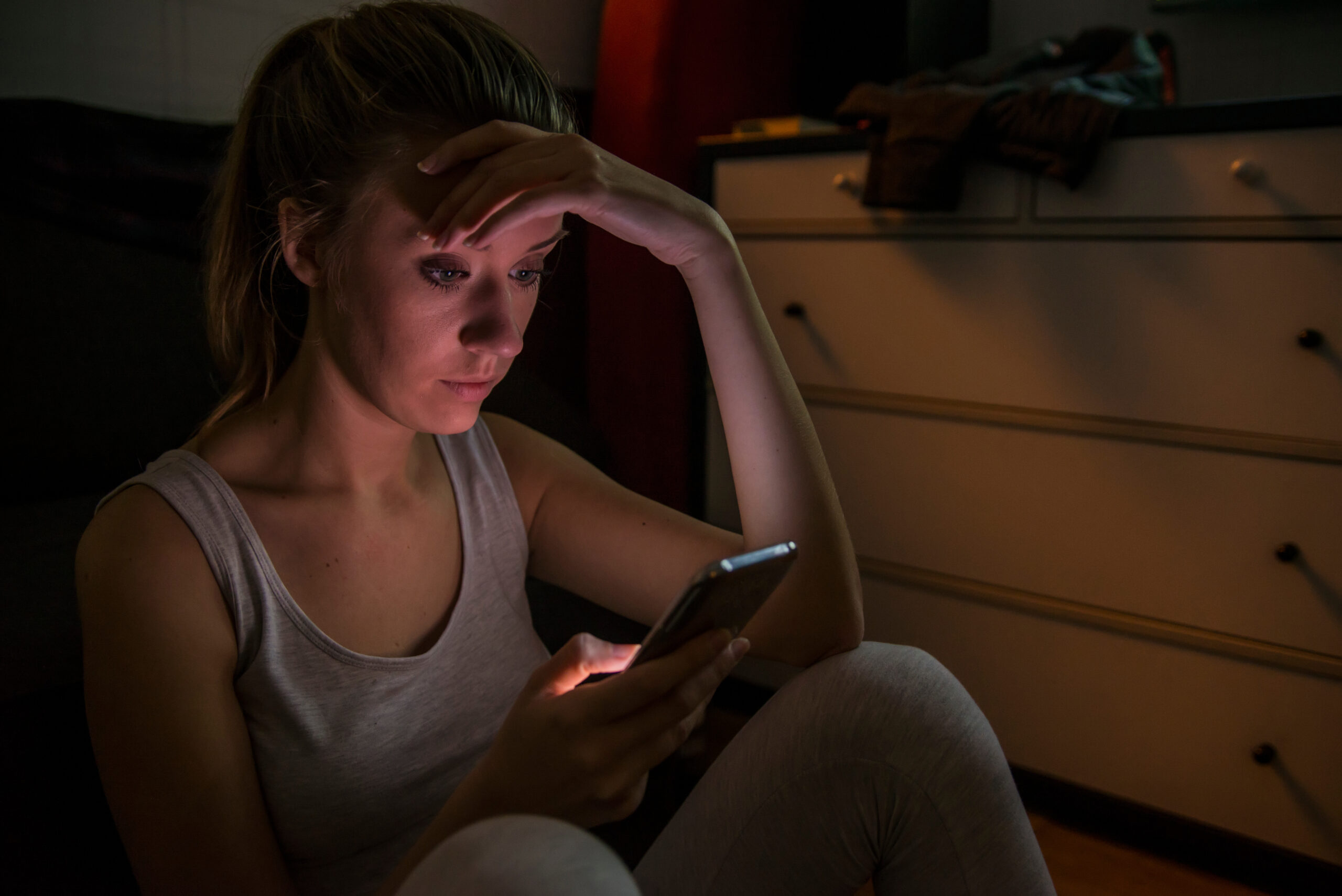Imagine for a moment a smartphone app. The capabilities of this app are astonishing. After using it for a few weeks it has the power to give you body image issues.
Would you download it? Probably not.
What if I told you this app is so effective that it can convince you that you are too ugly, too fat, too skinny, too pale or too dark to be attractive? After using it, various parts of your body will suddenly become disgusting and you might vow never to show them in public again. Still not convinced?
Don’t you want body image issues?
Could I change your mind if I told you some of the most famous and body image conscious people on the planet use this app?
Maybe I could trigger your fear of missing out by telling you 1 billion people have this app and regularly enjoy these ‘benefits’?
Well, you might be surprised to learn that you probably downloaded it ages ago and have used it in the last 30 minutes.
Take a selfie
I suspect most people reading this already know that I am talking about, of course, Instagram. A photo and video sharing social media platform that has taken the world by storm since 2010 and is home to every kind of ‘selfie’ the human race can think of.

Instagram hosts millions of images and videos of gorgeous people doing gorgeous things in gorgeous places. Not only that, it’s full of advice on ways to get a ripped body like Thor from the Avengers, legs like a supermodel and ageless skin worthy of a Greek goddess.
Thanks to smartphone cameras and social media, our sense of self and how we believe others view us is now under intense scrutiny.
Body image and mental health
How we view ourselves – particularly our body image – is a significant contributor to our mental health. For good or bad, self-perception and body image has a big influence on our mental health. Instagram provides a way for users to compare and contrast themselves to the rest of the world, both consciously and unconsciously.
The problem is that it is not a fair or honest comparison.
In the world of Instagram, we tend to fall into one of two camps: those who are aware that what we see is carefully curated; and those that are yet to realise it. Yet in both cases, we still seem to put our own body image on trial against the ‘perfection’ that we are presented with.

Flawless Instagram perfection
Filters can smooth, stretch, slim and airbrush appearances until they are far removed from reality. Yet we still look at our own bodies as inferior compared to this doctored flawlessness. Even when we come to accept that the bikini bodies are manipulated and altered, we are presented with lifestyles that are in effect airbrushed as well.
Rarely do we see the realities of day-to-day life make it onto an Instagram feed. Peoples’ homes are presented as perpetually neat and beautifully decorated. Children are angelic and loveable, not covered in their lunch or fighting with a sibling. Holidays are all picture-perfect sunsets and selfies without a hint of the realities of perhaps having to holiday on a very tight budget.
Each time we view an Instagram feed we are setting ourselves up, effectively, to fall short of filtered perfection. Consequently, our reaction is not one of self-assured confidence. Rather it is one of crippling disappointment, compounded by the decision to willingly go through this process multiple times a day, seven days a week.
Body image and social media: a toxic mix?
Rarely do we view these images and simply think “that’s nice for her/him. Their hair/outfit/beach body looks lovely”. Instead, a toxic mix has been created that leaves us doubting our own body image, self-esteem and general sense of satisfaction with life.
We, therefore, need to ask ourselves this question: is this good for my own body image and consequently my mental health?

This article is not intended to be a hatchet job on Instagram or social media in general. Instagram is a great tool for sharing special moments with friends and family. It is a wonderful shop window for the creative arts, whether that is photography, videography, dance or theatre. There is much to be applauded but getting the best out of it depends a great deal on how we use it and what motivates us to view and share content.
Consider who you follow on Instagram (and social media in general) at the moment and ask yourself: what am I getting from this?
What are you getting from this?
When you look at the feed of that famous actor, model or celebrity does it give you enjoyment for seeing what they are up to or damage your body image? In following the feeds of friends and family does it help you stay connected and share in the joy of their experiences, or make you dislike your looks, clothes or life?
When you watch videos by fitness gurus or celebrity personal trainers do they motivate you to get active? Or do you fixate on your various wobbly, bumpy and lumpy parts?
Using social media of any kind should be an experience that brings value and joy to our lives. When it starts to negatively impact our body image, self-esteem or mental health it is worth considering taking a break.
Instead, spend time focusing on all the many wonderful things about you that have nothing to do with your waist size. You will find many.
Find someone to talk to
Life can be challenging at times. And speaking to a loved one or friend is sometimes not enough to overcome those challenges. Talking to a counsellor can help you understand the problems you face and decide how to move forward positively.
Find out more about our counselling services for couples, individuals and families on freephone 0808 802 2088 during our opening hours. Alternatively, find your nearest counselling centre.

